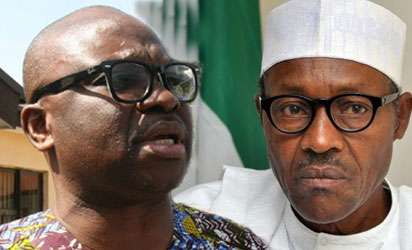CBN mops up N17.5trn through OMO sales in 2018

…As investors raked N89bn in first week trading of 2019
…Foreign reserves steady at $43bn
As part of efforts to manage excess liquidity in the system, the Central Bank of Nigeria (CBN) mopped up the total sum of N17.5 trillion through the sales of Open Market Operation (OMO) in 2018.
This is even as investors in the equities market of the Nigerian Stock Exchange (NSE) recorded gains of N89 billion in the first trading week of 2019.
Latest information obtained from the official website of the apex bank over the weekend showed an increase of OMO sales in December and January of the just concluded year.
For instance, a total amount of N2.08 trillion worth of OMO was sold in January but recorded a lower amount of N1.97 trillion in December 2018.
It is, however, worthy of that the CBN OMO bills were utilised as the main instrument for liquidity management. The bill auctions were also used to boost tradable securities and increase activities in the secondary market.
As a result of its restrictive monetary policy, the apex bank intensified its mop-up of excess liquidity in the system by the sale of Treasury bills with OMO.
The CBN does not only use OMO; it also uses Treasury Bills and Federal Government Bonds to stem inflationary pressure and curtail liquidity arising from maturing bills.
According to CBN, OMO sales have attracted rates between 17.5 per cent and 18.5 per cent, a move to keep the foreign exchange stable.
The apex bank in 2017 offered OMO bills worth N13.76 trillion, while total public subscription and sale amounted to N12.3 trillion and N11.34 trillion, respectively, compared with N6.73 trillion, N10.29 trillion and N7.86 trillion offered, subscribed and sold, respectively, in 2016.
According to CBN, “the increase in the sale of CBN bills, in the review period, was attributed, largely, to the increased number of OMO auctions conducted to curb excess liquidity, occasioned by maturing CBN bills, monthly disbursement of statutory revenue and swaps transactions to avoid liquidity surfeit in the banking system.”
The Managing Director, Maxifund Investments and Securities Limited, Mr. Okechukwu Unegbu, had attributed the increased OMO sales to improved economy and policy stance of the CBN.
He noted that OMO sales have impacted on the capital market and money market as investors are reaping from the daily auction.
His words: “OMO is one of the instruments CBN used in controlling money in circulation, making sure the rate of inflation is reduced. Investors will always go to where it is easy for them concerning reaping their investment, be it short-term or long-term.
“The increased OMO sales by CBN have boosted the economy further and both capital market and money market are benefitting, as policy direction of the CBN has proven working this year.”
CBN Governor, Mr. Godwin Emefiele, in last month predicted that monetary policy stance would remain judicious, research-driven, adequate and supportive of the real economy subject to underlying fundamentals.
He pointed out that the current tight stance was expected to continue in the near-term, especially because of rising inflation expectations and exchange market pressures.
He said: “Though we will act to appropriately adjust the policy rate in line with unfolding conditions and outlooks, the CBN will continue to ensure that the policy interest rate is delicately set to balance the objectives of price stability with output stabilisation.
“With favourable oil price developments and continued efforts at driving indigenous production in high-impact real sector activities, especially agriculture and manufacturing, Gross Domestic Product (GDP) is expected to pick-up in the remaining two quarters of 2018.”
Despite the maturity of N547 billion worth of OMO bills last week, money market rates increased in the outgone week as Overnight and Open-Buy Back rates rose from 18.42 per cent and 17.17per cent to close at 23.75 per cent and 20 per cent respectively. The increase in rates may have been supported by the sales of N579 billion worth of OMO bills as well as retail foreign exchange interventions sales.
Meanwhile, at the end of the three-day trading, the NSE All Share Index dropped by 1.3 per cent to close at 30,638.90 basis points from 31,037.72 basis points, while market capitalisation closed at N11.426 trillion, an increase of one per cent from N11.337 trillion the market opened for trading.
All other indices finished lower as the Industrial index led the pack by 3.9 per cent, followed closely by the Banking index 2.7 per cent, Consumer Goods index one per cent, and Insurance index one per cent indices respectively, with the exception of the NSE Oil and Gas Index that rose by 2.91 per cent.
According to NSE, “a total turnover of 1.647 billion shares worth N8.413 billion in 14,773 deals were traded this week by investors on the floor of the Exchange in contrast to a total of 3.129 billion shares valued at N14.348 billion that exchanged hands last week in 10,394 deals.
“The Financial Services Industry (measured by volume) led the activity chart with 1.154 billion shares valued at N5.742 billion traded in 9,174 deals; thus contributing 70.08 per cent and 68.25 per cent to the total equity turnover volume and value respectively. The Healthcare Industry followed with 271.277 million shares worth N82.647 million in 219 deals.
“The third place was Services Industry with a turnover of 91.734 million shares worth N 208.562 million in 232 deals.
“Trading in the Top Three Equities namely, Diamond Bank Plc, Union Diagnostic & Clinical Services Plc and NEM Insurance Plc (measured by volume) accounted for 816.016 million shares worth N1.305 billion in 1,615 deals, contributing 49.54 per cent and 15.51 per cent to the total equity turnover volume and value respectively.”
A total of 7,209 units of Federal Government Bonds valued at N6.958 million were traded this week in 8 deals compared with a total of 686 units valued at N689, 162.04 transacted last week in 3 deals.
The price movement chart showed that only 22 equities appreciated during the week, lower than 52 in the previous week. 45 equities depreciated, higher than 18 of the previous week, while 97 equities remained unchanged higher than 94 equities recorded in the previous week.
Meanwhile, the nation’s foreign reserve at the end of first trading week of 2019, stood at $43,057 billion, weaker than $43,075 billion opened on Wednesday, however, better than $38.9 billion stood in 2017; $27.9 billion in 20176; $28.2 billion in 2015, and $34.2 billion in 2014, but lower than above $45 billion stood in 2014.
Despite shedding $18.55 million between the last trading day of 2018 and the first trading day of 2019, the forex reserve still stands at the highest January figure in six years.
In 2018, Godwin Emefiele, governor of the central bank, made it clear that the apex bank, under his leadership, will prioritise defending the naira over building reserves.
Speaking at the last IMF/ World Bank meeting held in Bali, Indonesia, Emefiele said Nigeria has a choice to make between building reserve buffers or defending the naira.
He said: “We are going to need to build buffers but unfortunately I must say that we are in a period where it is difficult to talk about building reserves.
“You can only build reserve buffers if you want to hold on to the reserves while allowing your currency to go and wherever it goes is something else.
“It is a choice we have to make and at this time, the choice for Nigeria is to maintain a stable exchange rate so that businesses can plan and we don’t create problems in the banking system”.
To this end, the apex bank on Friday made its first intervention in the inter-bank sector of the Foreign Exchange market for 2019 with the sum of $210m.
The CBN Director, Corporate Communications, Isaac Okorafor, said the wholesale sector of the market received 100 million dollars, while the Small and Medium Enterprises received $55m.
Okorafor said another $55m was allocated to customers requiring foreign exchange for business and personal travels, tuition or medical fees.
The CBN spokesman said the apex bank would continue from where it stopped in 2018 to maintain the stability being enjoyed in the market.
He noted that the Bank had made a commendable effort in keeping the exchange rates at the current levels.
Okorafor said the current capital flow reversals from the emerging markets were expected to bring out pressures on the market rates.
He, however, assured that, in spite of the anticipated pressures, coupled with the forthcoming elections, the bank was committed to maintaining the current exchange rate policy, given the level of reserves.
“The CBN is determined to sustain a stable exchange rate as it continues to put in place relevant measures to shore up the country’s reserves”, Okorafor said in a statement.
Motolani Oseni








